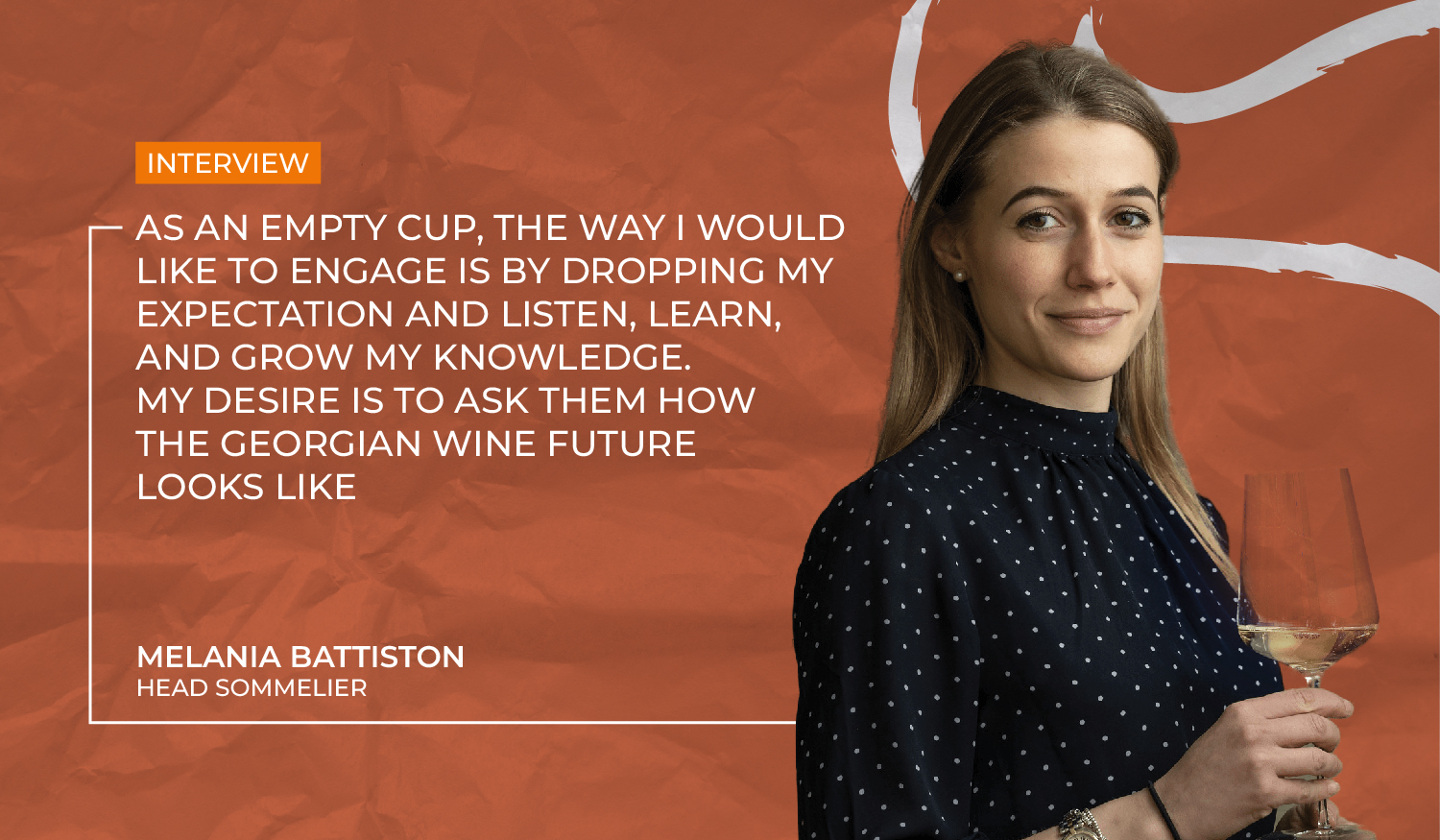
Melania Battiston: As an empty cup, the way I would like to engage is by dropping my expectation and listen, learn, and grow my knowledge. My desire is to ask them how the Georgian wine future looks like
Melania, with your rich experience and unique palate, you’ve championed wines that blend both traditional and adventurous elements. What are you particularly looking forward to discovering or experiencing in the wines from IWSC Wine Judging in Georgia?
With Georgia, I would like to find its own sense of place. I am looking forward to understanding where they are at and what is the direction they would like to undertake. The natural wine movement and its history gave them status, however, I am wondering if they will keep their authenticity in winemaking and indigenous heritage or if at the crossroad, they will move away to their unique features, to satisfy the commercial demand.
Your journey from marketing to pursuing your passion for wine is truly inspiring. How do your marketing insights play into your role as Head Sommelier, Wine Buyer, and now as a judge for the IWSC Wine Judging?
I am slowly re-discovering Marketing and I am trying to apply it to wines, brands and winemaking regions. Communication has and will always have the biggest influence when try to make an impact on a brand or on a region. The head-line ‘Georgia is the birthplace of wine’ has a semantic satiation effect. It lost its ‘coolness’. I am coming to Georgia to find the new front-page.
2022 was a significant year for you with the Young Sommelier Competition win and being named as one of Harper’s Top 25 Sommeliers in the UK. How do accolades like these shape your approach to wine judging, and what advice would you give to budding sommeliers who aspire to gain such honors?
I believe titles do not necessarily make someone a better sommelier or a more prepared professional, also when it comes to wine judging. Competitions and exams are the tip of the Iceberg, what people can see and professionals can be recognised for. The hard work is beneath the surface. To become a skilled wine judge, of course you need to be familiar with wine styles grapes and origins, which means you have to spend your time reading about them and discussing with peers and be informed. However, you also need to be a mediator, a natural communicator, and a bit of a writer. You need to be willing to embrace what the regional experts have to say and apply it into your judging process, you need to be honest and critical when needed, and don’t be afraid to stand up for your opinion or going against someone’s else’s. First and foremost be objective and integrate a helpful feedback when necessary.
With the IWSC Wine Judging in Georgia on the horizon, what are your expectations from the wines of the Caucasus region? And how do you envision the feedback from this event impacting the wine industry in these countries?
Being the climate being so diverse from desert like-arid East to cooler and more humid West, being the landscape so vary, from the Caucasus mountains and the lowlands, and the tons of river, I expect many different wine styles. I don’t expect the classic Western European winemaking, I expect rusticity (not being a negative attribute, but being authentic in their own way), perhaps high alcohol and a pungent first-nose.
Melania, considering Georgia’s rich 8000-year history in wine production, what are you most looking forward to experiencing firsthand in this storied wine-producing nation?
I found fascinating the melange between history and wine.
Being Italian and having so many indigenous grape variety in my country, I am incredibly curious to taste and get to know some of the 500 native Georgian varieties and others originally from the Caucasus regions.
I would love to experience the historical kvevri winemaking and also I am also looking forward to discovery some elegant examples from the region, and prove myself wrong.
Georgia takes great pride in its wine heritage, with local experts and aficionados deeply cherishing and recommending their wines. As you prepare for this journey, how are you gearing up to engage with Georgian winemakers and immerse yourself in their wines?
As an empty cup, the way I would like to engage is by dropping my expectation and listen, learn, and grow my knowledge. My desire is to ask them how the Georgian wine future looks like. If a sense of place exists nowadays and if it is reflected in their wines. I would listen to how people left the traditional kvevri to satisfy a more international market and commercial demand.
Given your extensive knowledge and experience in the wine industry, how do you anticipate Georgian wines might stand out or differ from others you’ve tasted around the world?
Georgian wines are not as obscure as it used to be, however, it is still not popular enough to have a clear idea on the general style offered by the region. I know small scale family wineries are doing an impressive job, modernising winemaking and machinery techniques and gaining more insights about their land. Perhaps those are the wines who will blow our mind as judges, the tiny producers we are not able to reach yet.
